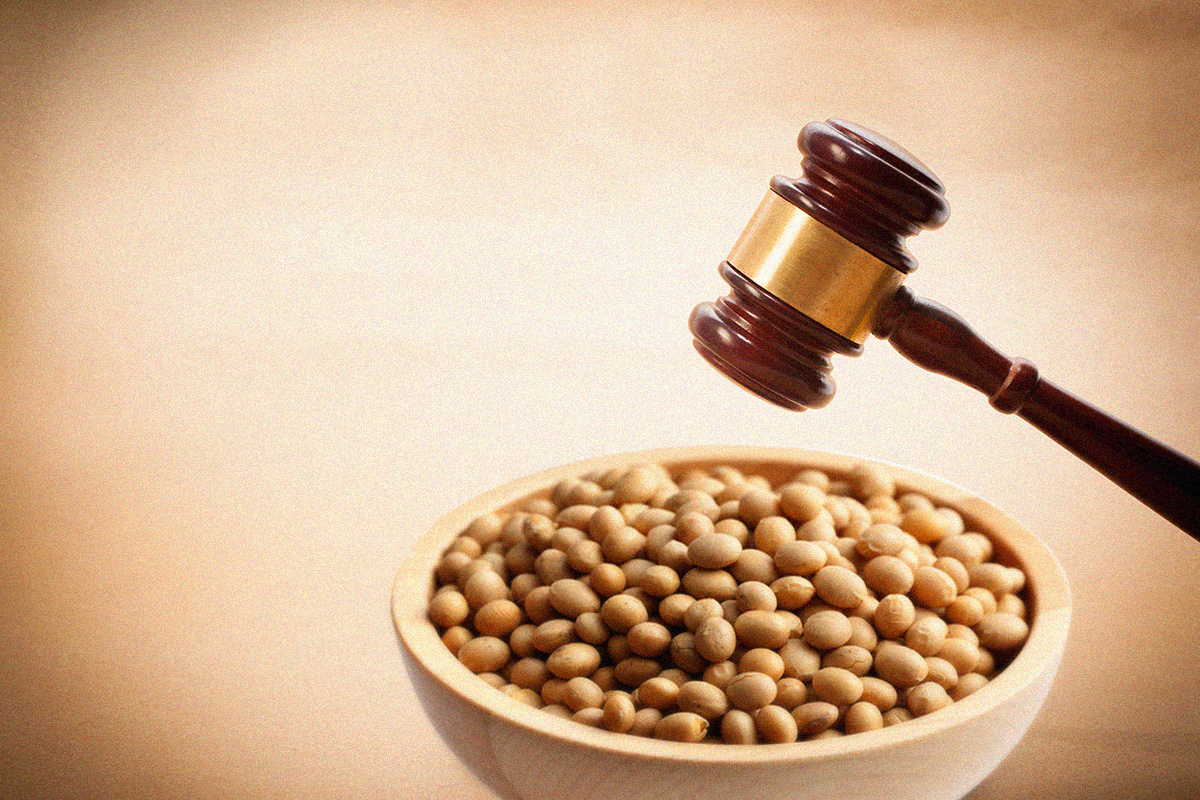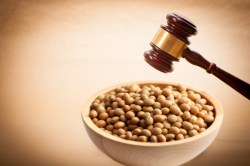In a blow to opponents of GMOs and Monsanto, the Supreme Court today ruled unanimously that an Indiana soybean farmer violated the company’s patent by saving its trademark Roundup Ready seeds.
Every time a farmer buys seeds from Monsanto, she or he must sign a contract agreeing not to save seeds from the crop. Monsanto’s many vociferous critics condemn this practice for the way it traps farmers in a costly cycle of dependence on the company’s products. The farmer in this case, Vernon Bowman, signed such an agreement when he originally bought Monsanto’s Roundup Ready soybeans. But he found a clever way to get around the restrictions. Tom Laskawy explains:
For years, Bowman would grow a first crop of Monsanto seed, which he would purchase legally, and then would buy some commodity seed from his local grain elevator for his second crop. While aware he could not save seeds from the first crop he grew, Bowman would later plant the commodity seeds, spray the plants with Roundup, and was then able to identify which were resistant to the herbicide when they didn’t die. Bowman saved those seeds and saved money, since he had bought the commodity seeds for his second crop at a steep discount without paying Monsanto or signing its licensing agreement.
Farmers can sell saved seed to local grain elevators, which often resell the mixed seed packs for animal feed or industrial uses. In buying these so-called commodity seeds from the grain elevator, Bowman rightly assumed, as The Washington Post explains, that “those beans were mostly Roundup Ready — resistant to the weedkiller glyphosate — because that’s what most of his neighbors grow.” Bowman saved and replanted the Roundup Ready seeds from his second crop for eight years before Monsanto caught on and sued.
Mr. Bowman’s main argument was that a doctrine called patent exhaustion allowed him to do what he liked with products he had obtained legally. But Justice Kagan said it did not apply to the way he had used the seeds.
“Under the patent exhaustion doctrine, Bowman could resell the patented soybeans he purchased from the grain elevator; so too he could consume the beans himself or feed them to his animals,” she wrote.
“But the exhaustion doctrine does not enable Bowman to make additional patented soybeans without Monsanto’s permission,” she continued, “and that is precisely what Bowman did.” …
Accepting that theory, she wrote, would create an “unprecedented exception” to the exhaustion doctrine. “If simple copying were a protected use,” she wrote, “a patent would plummet in value after the first sale of the item containing the invention.”
Sustainable-farming advocates and GMO critics intensely followed the case in the hopes that a ruling against Monsanto would finally put some limits on that company’s power in the agriculture industry. But the case was also “closely watched by researchers and businesses holding patents on DNA molecules, nanotechnologies and other self-replicating technologies,” the Associated Press reports.
Indeed, it seems the Supreme Court was more concerned about patent law than agricultural issues. The Washington Post reports:
While the case was about soybeans, the broader issue of patent protection is important to makers of vaccines, software and other products. Corporations were worried about what might happen if the decision had gone the other way.
But, as the justices had indicated at oral arguments in the case, they believed Bowman’s practices threaten the incentive for invention that is at the heart of patent law.
The court’s decision crushed the hopes of many in the anti-Monsanto camp. The Environmental Working Group’s General Counsel Thomas Cluderay said it “tightens the seed giant’s stranglehold on American agriculture” and “will no doubt pave the way for greater use and development of genetically engineered seed products and use of toxic pesticides, such as Roundup, on our farm fields.”
But sadly, the fact that the ruling was unanimous indicates that there probably never was much of a chance of it going the other way.



